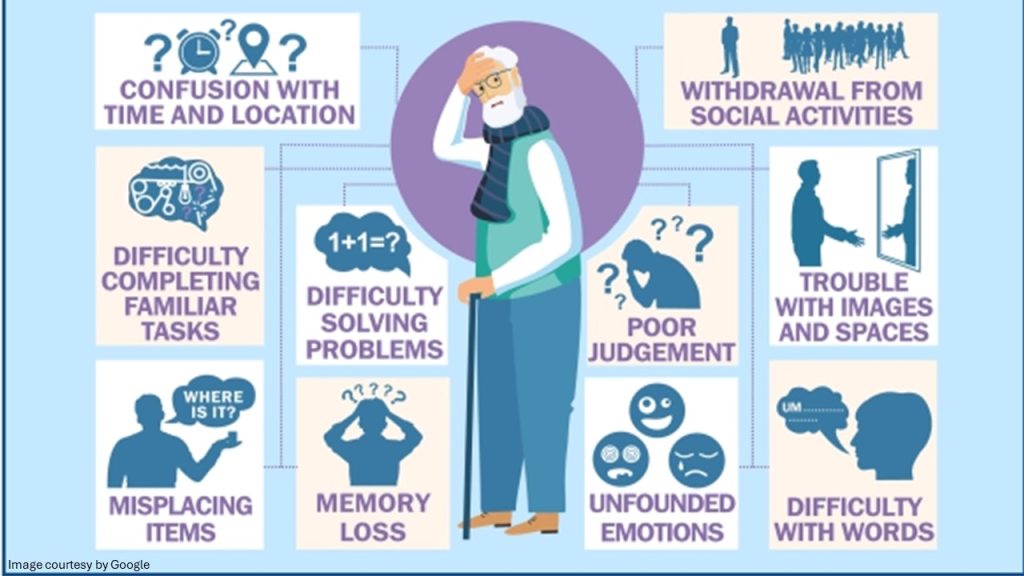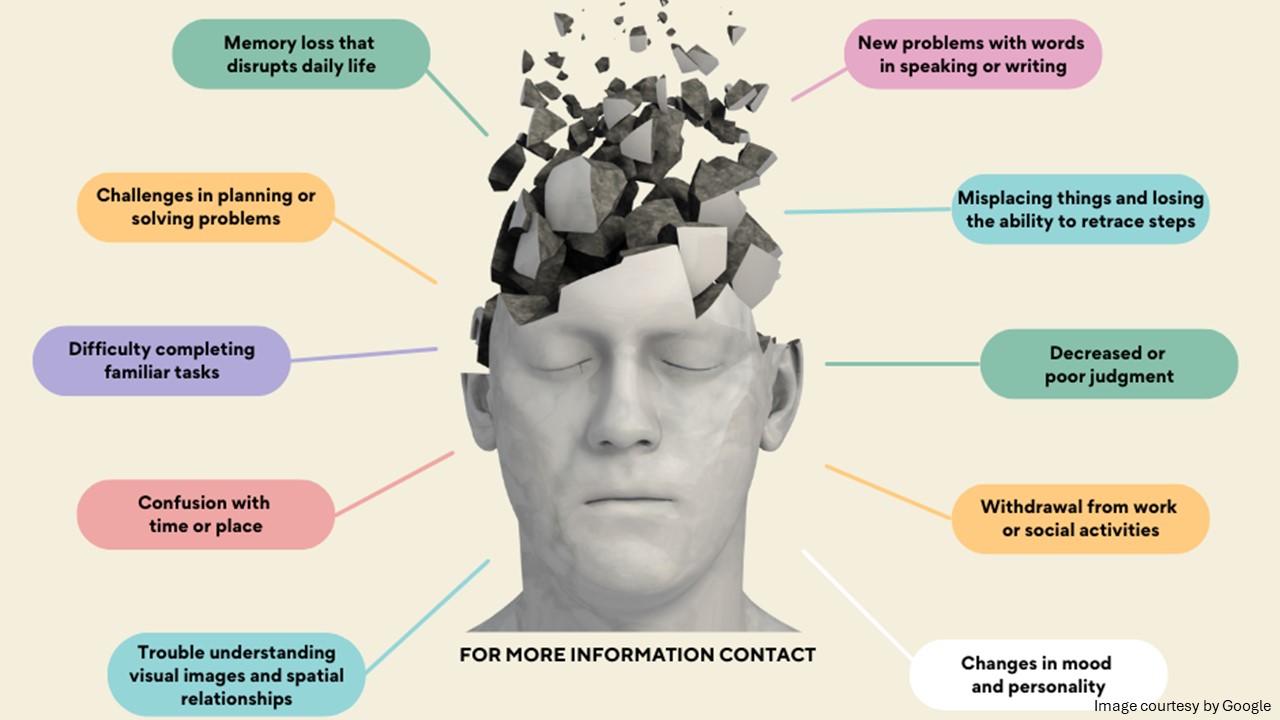Alzheimer’s disease is a brain disorder that has a direct impact on memory as well as the reasoning ability of an individual. An important part of diagnosing this brain disorder includes being able to explain your symptoms. Input from your family members and loved ones about your symptoms and their impact on your daily life helps. There is no cure for this neurological condition, but there are treatments that may change disease progression and help treat symptoms.
Understanding available Alzheimer’s disease treatment options can help individuals living with the condition cope with symptoms and improve their quality of life. Patients who have Alzheimer’s often show symptoms of Alzheimer’s disease, and we must recognize these symptoms.
The 10 Early signs of Alzheimer’s are:
- Memory loss is the first of Alzheimer’s symptoms. It is, however, important to know the difference between forgetfulness due to aging and memory loss due to this disease. Forgetting your keys or the names of people you have been introduced to recently is a sign of aging. When a person starts to forget things that were part of their daily routine, like their habits, the names of their loved ones, their daily route to work, etc, these are symptoms of Alzheimer’s disease.

- Challenges in solving easy, work-related problems like following a plan or following a simple recipe while cooking are a few early signs of Alzheimer’s. Persons suffering from the disease will also have trouble concentrating on a particular thing for too long.
- People with Alzheimer’s often find it hard to complete daily tasks. It becomes hard for them to complete the tasks and know what is to be done. They have difficulty in finding directions to familiar locations. They have trouble managing a budget at work or remembering what the rules of their favorite games used to be.
- Another early sign of Alzheimer’s can be losing track of the passage of time or seasons and dates. People suffering from the disease may have trouble understanding something if it is not happening immediately. They tend to forget the sequence of events and how things became how they are now. They may forget where they are or how they got there.
- Sometimes, one of Alzheimer’s symptomscan be vision problems. People suffering may have difficulty reading something, judging the distance from places or objects, and determining color or contrast. They also have trouble driving because of this.
- Another symptom of Alzheimer’s disease is that people may have trouble participating in a conversation. Following or joining a conversation becomes a problem for them. They may stop during a conversation and have no idea how to continue, or they may repeat themselves. The patients also struggle with vocabulary and have problems finding the right words or names for objects.
- Another early sign of Alzheimer’s disease is that people may put things in unusual places. They forget to keep things in the correct or usual places because they cannot locate the correct place in their brain. The patients sometimes put a banana in a shoe rack and a bag in the refrigerator. They may lose things and cannot return to their steps to find them again. They get lost because of this and may sometimes be unable to trace back their steps. People who have Alzheimer’s are sometimes accused of stealing. If this happens often, this may be a symptom of Alzheimer’s disease.
- Next, one of the Alzheimer’s symptoms is experiencing changes in judgment or decision-making. People may use poor judgment when dealing with money and make bad financial decisions, like giving large amounts to telemarketers. They may not keep themselves clean or pay attention to hygiene.
- A person with Alzheimer’s may start to remove themselves from work, hobbies, social activities, or sports. This is another early sign of Alzheimer’s disease. They stop or reduce being social. They forget their favorite things to do, their hobbies, their favorite teams, etc.
- The last symptom of Alzheimer’s disease is that the people suffering from the disease experience a change in their mood and personalities. They can become confused, depressed, afraid, suspicious, or anxiety-driven. They may be easily upset by others at home, work, or outside of their comfort zone.
Verdict!
Alzheimer’s disease affects everyone differently, and Alzheimer’s treatment is highly individualized. Alzheimer’s medication and other interventions can help with behavioral symptoms. Beginning Alzheimer’s disease treatment as early as possible could help patients maintain daily functioning for a while. Your healthcare provider will determine the best treatment plan for you.
Amelia Smith
Latest posts by Amelia Smith (see all)
- Careprost for Fuller Eyelashes - July 11, 2024
- Tips to Get Longer Eyelashes - July 10, 2024
- Tips to Boost Eyelash Growth - April 8, 2024




